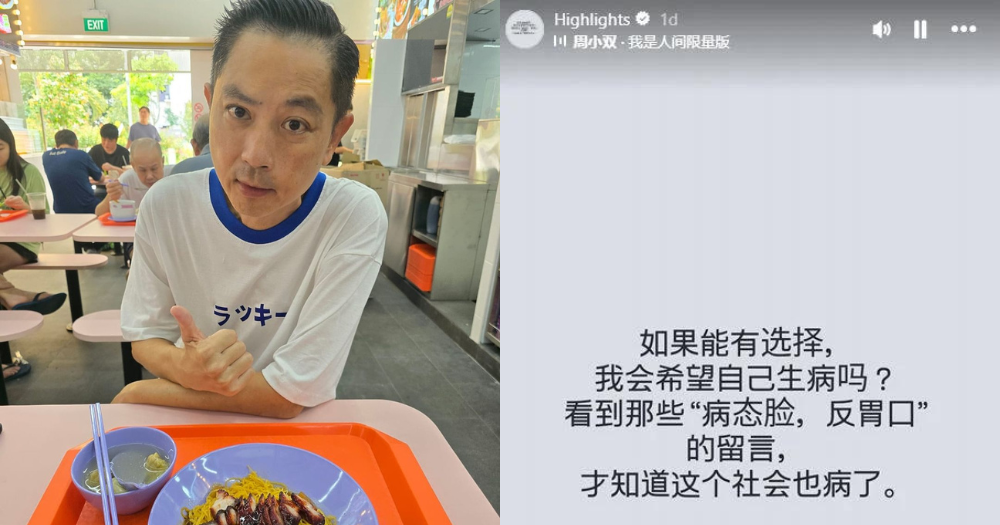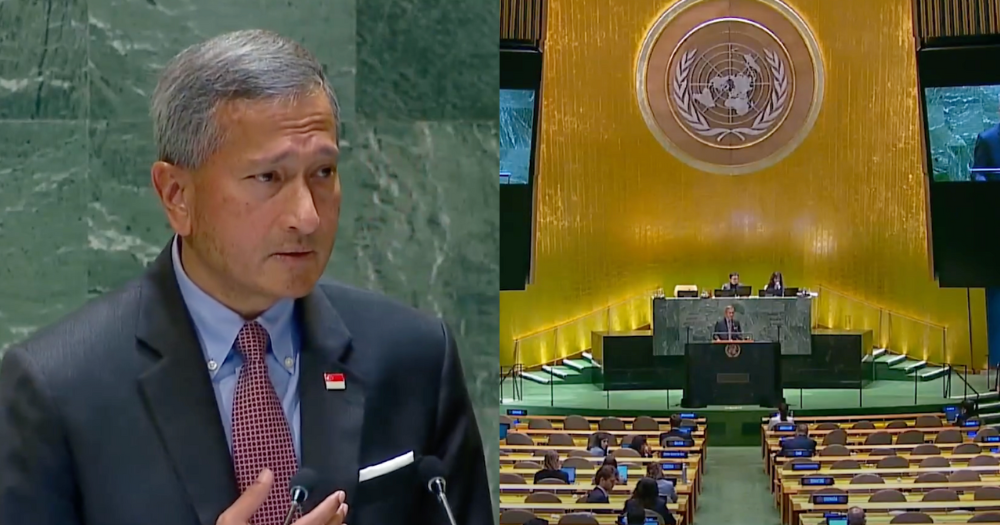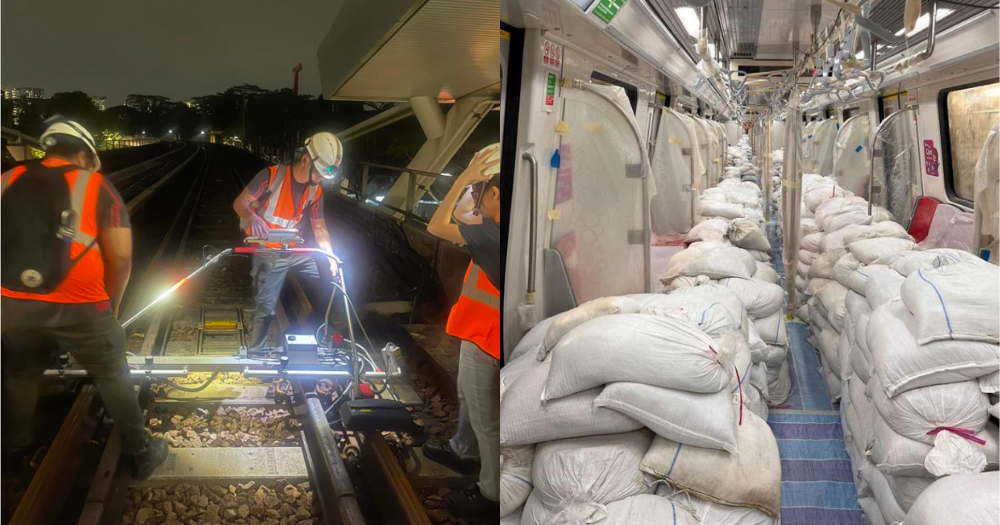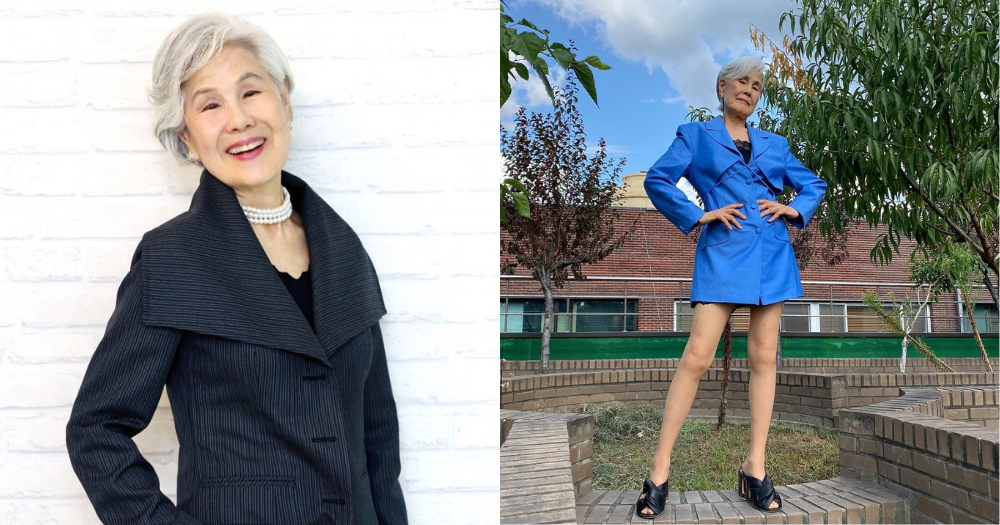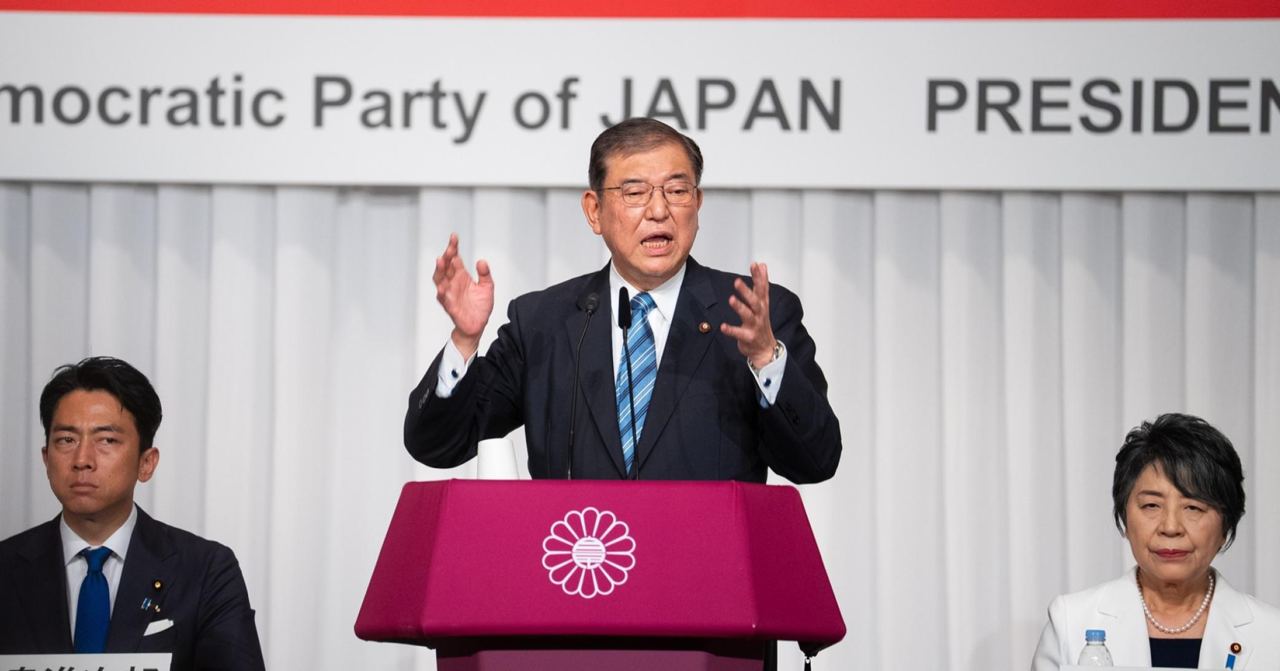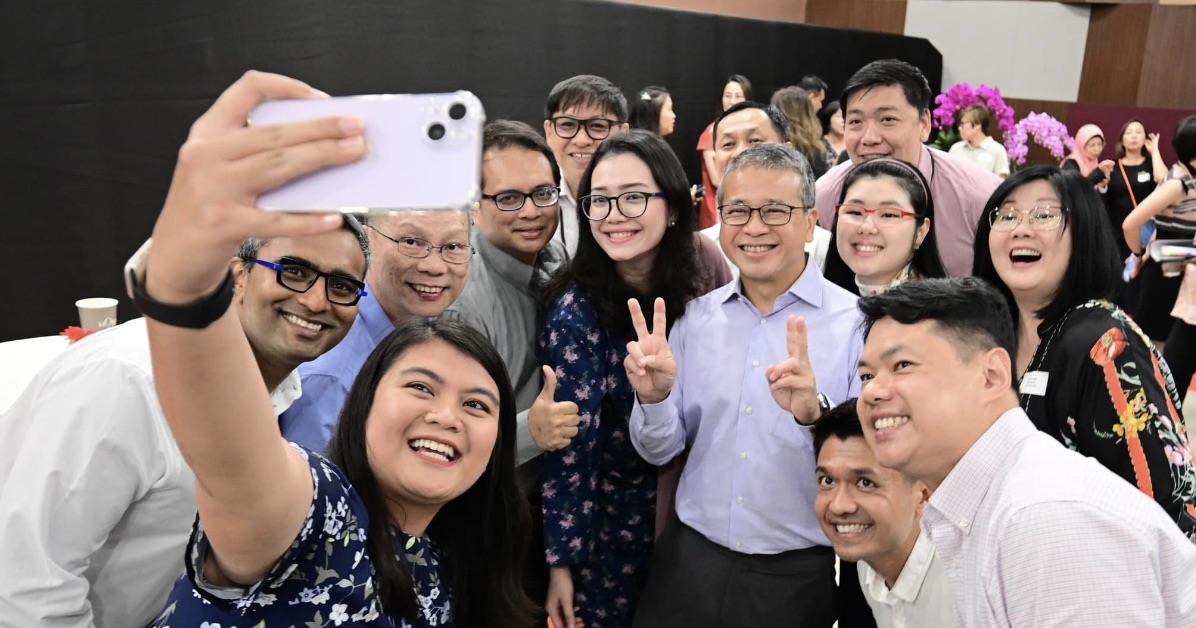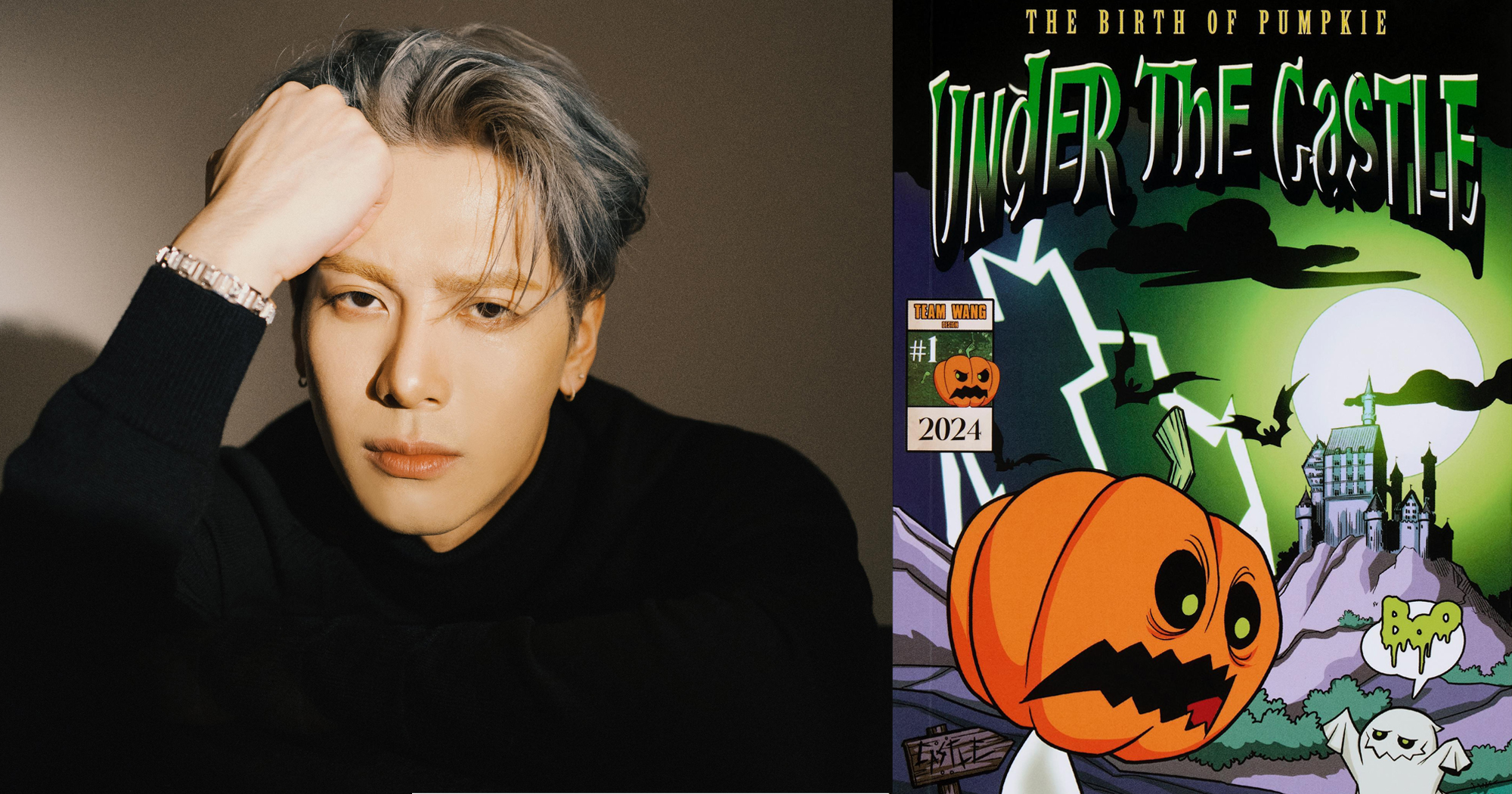In a fractious world, we need the UN more than ever: Vivian at the UNGA
UN Secretary-General Antonio Gutierrez credited Singapore's Permanent Representative Burhan Gafoor's leading role in mobilising a significant proportion of small states
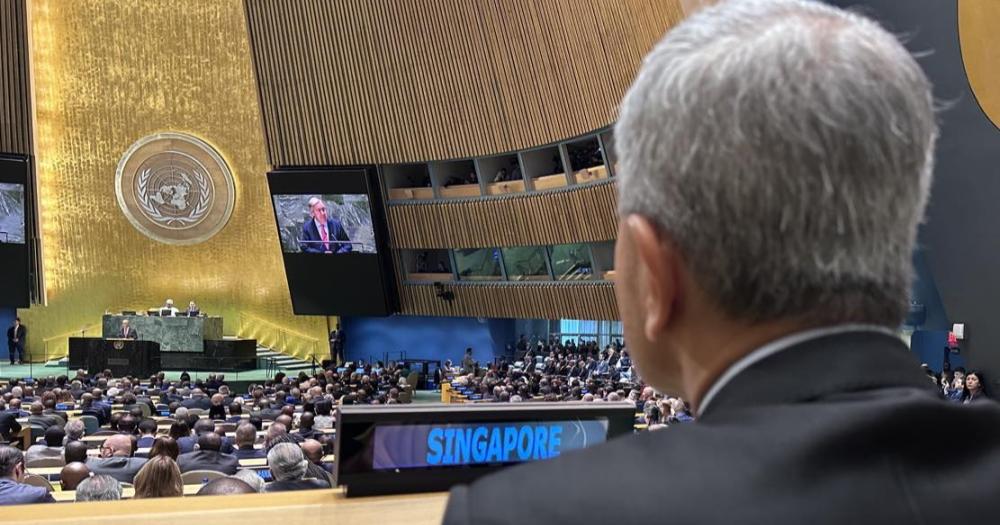
Singapore’s Foreign Minister Vivian Balakrishnan has been in New York over the past week attending the United Nations General Assembly’s (UNGA) High-Level Week.
Over that time, he has had over 30 bilateral meetings with foreign leaders and attended several multilateral meetings, including addressing the United Nations Security Council (UNSC) and speaking at the Summit of the Future.
On Sep. 28 (Singapore time), he answered questions from Singaporean media about what had been achieved at the United Nations (UN) and what was still to be done.
High tension at high levels
Vivian began by summing up his time at the UNGA; his eighth UNGA since becoming foreign minister.
He described it as an exhausting, yet very engaging and challenging time.
This year was particularly challenging, taking place against the backdrop of several conflicts, such as in Ukraine, the Middle East, and Sudan; and the delay in achieving the Sustainable Development Goals.
The Summit for the Future took place in this context, just before the General Assembly.
The Summit and the Pact for the Future that emanated from it was an opportunity to look at the relevance of the UN and how fit for purpose it was for the future.
Ongoing conflicts
Vivian said that despite repeated debates at the General Assembly and UNSC, the conflicts in the world had not stopped, and this was a source of deep concern at the summit of the future.
It was clear to everyone, Vivian said, that the UN needed to be transformed and made fit for purpose, and that consensus was how the Pact for the Future was concluded.
He played up the role that small states had played in achieving consensus, saying that until the previous week, he was not sure a consensus would be achieved before the summit.
Vivian credited Singapore's Permanent Representative to the UN Burhan Gafoor's leading role in mobilising a significant proportion of small states.
UN Secretary-General Antonio Gutierrez confirmed to Vivian that Gafoor had made a "pivotal difference".
He also spoke briefly about the over 30 bilateral meetings with nations from the Middle East, South and Latin America, and Africa.
These covered a wide range of topics, such as how more humanitarian assistance could be delivered to civilians in need in the Middle East, engaging with the prime minister of Palestine, as well as the foreign ministers of Saudi Arabia, the United Arab Emirates, Qatar, and Egypt.
With Latin American, South American and African countries, the meetings were economic in nature, and these countries were significant to Singapore as sources of food, minerals, and new markets for Singapore companies to expand.
The UN’s relevance
Responding to a question from Mothership about the UN’s ongoing relevance to Singapore in light of the ongoing conflicts around the world, Vivian said that the current situation showed that the world needed the UN more than ever.
At a time of war, tension, polarisation, and division, it was easy to jump to conclusions and say that the UN does not work.
But Vivian rejected this, saying that precisely because we live in a “fractured and difficult world”, we needed multilateralism and international law.
The UN was the only organisation with universal participation and legitimacy.
When decisions are made and consensus is achieved at the UN, “it means something, it sets norms, it sets expectations, it sets international law”.
Rather than saying that the UN was irrelevant, the world needed to double down on it.
“And where things did not work or did not work well enough, the world needed to reform the UN and its processes.”
This, he said, was the purpose of the Summit of the Future.
The other organs
Vivian also wanted to shine a light on the other parts of the UN beyond the fractious and emotional debates at the General Assembly and Security Council, highlighting its other principal organs that he considered vital.
Vivian gave several examples, such as the World Health Organization, the International Court of Justice, and the International Atomic Energy Agency.
He also highlighted the World Intellectual Property Organization, which is currently helmed by a Singaporean, Daren Tang.
Vivian said these agencies, and the services they provided, were essential public goods that the world needed.
“We need the UN more than ever before given the state of the world.”
UNSC reform
Vivian also responded to a question about reform of the UN Security Council.
Vivian addressed the UNSC earlier in the week and suggested attempts to reform the body.
He suggested constraining, but not removing, the Permanent Five (P5) members of the UNSC's ability to veto motions.
Attempts to constrain the use of the P5’s veto are not new, Singapore and several other members of the UN had made the suggestion repeatedly.
He admitted that getting the P5 members, the only members who had access to the veto, to voluntarily constrain their monopoly on the veto was very difficult.
Nonetheless, the argument for it needed to be made regardless of whether it would be implemented or not.
Vivian said that progress had already been made, citing the veto initiative, which meant that when a P5 member vetoed a motion, they would need to go to the General Assembly soon after to explain why they were doing so, providing some accountability for their actions.
A positive and salutary effect
Vivian said that such a system of accountability had a positive and salutary effect, but that it was only a half step and there was still quite a long way to go.
It was important to keep making the pitch for reform of the UNSC, which was created in 1945.
The world has changed significantly since then, and if the Security Council is to be fit for purpose in the future, it had to reflect the world as it is today.
It would also need sufficient flexibility to evolve as the world evolves in the future.
Vivian said that there was no quick solution or answer, and while the direction of travel was obvious, there was a need to mobilise and to “move everyone along this journey, hopefully, to get it and as tightly packed as possible”.
Related stories
Top image via Vivian Balakrishnan/Facebook
MORE STORIES








